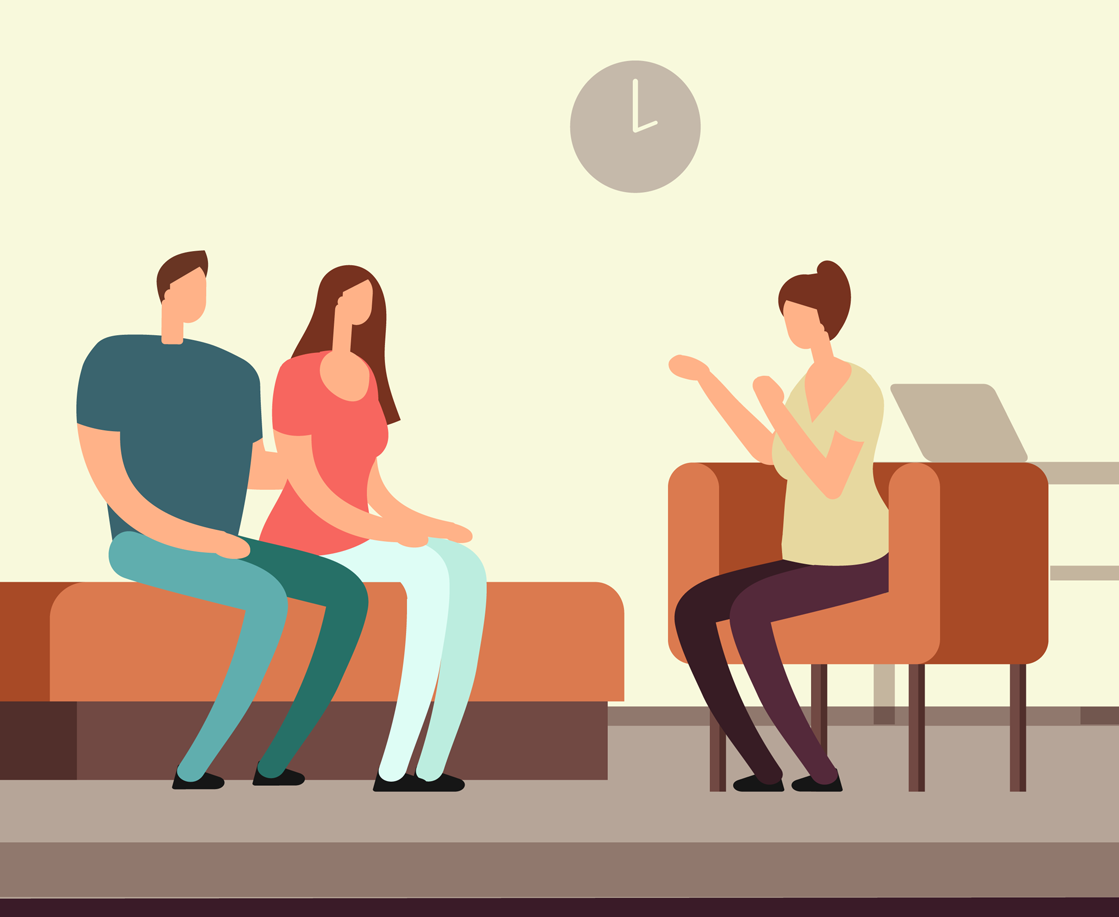“Stay calm! Stress won’t help!” If you’ve been trying for a baby for a while, chances are you’ve heard some variation of this well-meaning but pretty unhelpful advice. Telling a couple who want to get pregnant not to worry seems like telling water not to be wet. You want a baby more than anything, how could you not worry? What’s more, the fear of stress may actually make you more stressed.
But does stress affect fertility? What is fertility anxiety and what can you do about it? Here we break it down.
Can stress cause infertility?
Dr Anu Chawla, internationally renowned fertility expert and newest specialist on The Fertility and Gynaecology Academy team says: “The truth is, nobody knows definitively. There has been much debate and research within the scientific community but there is as yet no demonstrable straight line between stress and infertility and overall, the evidence is still inconclusive. We do know that stress can stimulate the release of the primary stress hormone cortisol in the body. Elevated cortisol levels, particularly for extended periods of time, can impact the body in a negative way, for example causing inflammation, affecting the gut, immune and thyroid function. These can have a knock-on effect on a woman’s reproductive function, like periods and even embryo implantation.”
So, while we don’t want you to worry about worrying, what we can say is that it’s best to try to cut out unnecessary stressors from your life and practice self-care, if nothing else because it will make everyday life easier as you try for a baby, and you deserve it!
Read more about stress and fertility.
Fertility anxiety during assisted conception treatment
If you are undergoing fertility treatment, we recommend that you seek out some relaxation techniques. Not only can the assisted conception process itself be daunting and full of extra tasks to add to your already packed schedule, but the hormones administered can elevate your stress levels and cause mood swings. And while IVF parents will tell you the stress of the process paled in comparison to the joy of holding their very own baby in their arms, you deserve to look after yourself during the process.
Am I anxious?
Many of us, particularly if we work in high-stress environments or fast-paced industries, are simply so used to being stressed that we don’t even recognise it. But the below could be tell-tale signs:
- Racing heart
- Shallow breathing
- Digestive issues
- Trouble sleeping
- Difficulty concentrating
- Overthinking things
- Avoiding tasks
10 ways to reduce stress when you’re trying to conceive
What can I do to lower stress levels and fertility anxiety? Different techniques seem to work for different people, so it’s often a case of trial and error. Here are 10 ways to try to reduce fertility stress:
- Camomile tea – this soothing, naturally caffeine-free herbal tea can be a great alternative to after-work wine – and remember, reducing alcohol intake is very much advisable if you want to get pregnant.
- Bubble baths – there is a wealth of different bath ingredients to aid relaxation and many women consider a bath the ultimate easy ‘me-time’ – quick, low-cost and accessible.
- Exercise – the benefits of moderate exercise on health including the cardiovascular and circulation system are well-known, but let’s not forget those anti-stress endorphins a workout releases! Regular exercise is one of the best anti-anxiety drugs known to man, and without side effects! Just be careful not to work out late at night as it can produce an energy bump right before bedtime. Yoga – particularly breath-focussed kinds such as hatha – can be incredibly calming and many devotees swear by it.
- Reduce your caffeine – caffeine is a stimulant and can contribute to anxiety, but we might be so used to that morning coffee that we don’t realise how much of a stimulant it really is. If the thought of withdrawal is daunting, cut back slowly.
- Cut out nicotine and reduce alcohol intake – nicotine is a stimulant and studies have shown it to be associated with anxiety. Alcohol affects the central nervous system and too much of it is unhelpful for mental wellbeing.
- Try meditation – neuroscientific studies have shown regular meditation to be associated with better brain health. And the good news is you don’t have to levitate or become a guru to feel the effects. There are many different methods to suit different preferences and plenty of helpful apps too.
- Take a break from social media – with all the upheaval in the world, sometimes your newsfeed can feel like a constant stream of bad news that you are powerless to change – in other words, a stress feeder! Try taking a break from social media and see if you feel calmer.
- Complementary therapies like acupuncture have been helpful for some people in decreasing stress, and while there are no guarantees, you might want to try it.
- Make a worry time or keep a worry notebook – it’s the endless rumination on ‘what ifs’ that’s so awful about worry, wasting our time and energy in a vicious cycle. But getting out of the worry spiral either via writing a worry down on paper or creating a limited time – say 10 minutes – to go over your worries, can allow you to cease ruminating and be present in the moment. The more we can be ‘present’ and productive, the less we may find we worry – a virtuous cycle!
- Confide in someone – you might find it helpful to just vent frustrations or fears to a friend or a therapist, decompressing the stress. And above all, be kind to you!
Have you been trying for a baby for a while? Want to check everything is alright? Or have you experienced IVF failure or miscarriage in the past?
Here at The Fertility and Gynaecology Academy we are experts in dealing with fertility problems and our success rates are among the best in the field. We also specialise in complex cases and have helped countless couples who’d all but given up hope to achieve their dream of a baby.
If you would like to arrange a Fertility Check or wish to discuss treatment options, call us on 020 7224 1880 or email info@fertility-academy.co.uk.







